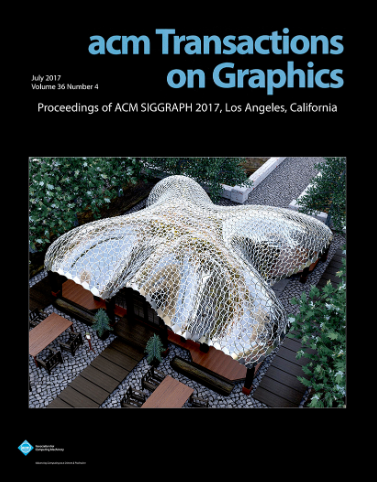Reliable Iterative Dynamics: A Versatile Method for Fast and Robust Simulation
IF 9.5
1区 计算机科学
Q1 COMPUTER SCIENCE, SOFTWARE ENGINEERING
引用次数: 0
Abstract
Simulating stiff materials has long posed formidable challenges for traditional physics-based solvers. Explicit time integration schemes demand prohibitively small time steps, while implicit methods necessitate an excessive number of iterations to converge, often yielding visually objectionable transient configurations in the early iterations, severely limiting their real-time applicability. Position-based dynamics techniques can efficiently simulate stiff constraints but are inherently restricted to constraint-based formulations, curtailing their versatility. We present ”Reliable Iterative Dynamics” (RID), a novel iterative solver that introduces a dual descent framework with theoretical guarantees for visual reliability at each iteration, while maintaining fast and stable convergence even for extremely stiff systems. Our core innovation is an iterative method that circumvents the need for numerous iterations or small time steps to handle stiff materials robustly. Experimental evaluations demonstrate our method’s ability to handle a wide range of materials, from soft to infinitely rigid, while producing visually reliable results even with large time steps and minimal iterations. The versatile formulation allows seamless integration with diverse simulation paradigms like the finite element method, material point method, smoothed particle hydrodynamics, and incremental potential contact for applications ranging from elastic body simulations to fluids and collision handling.可靠迭代动力学:一种快速鲁棒仿真的通用方法
长期以来,模拟刚性材料对传统的基于物理的解决方案提出了巨大的挑战。显式时间积分方案需要非常小的时间步长,而隐式方法需要大量的迭代来收敛,通常在早期迭代中产生视觉上令人反感的瞬态配置,严重限制了它们的实时适用性。基于位置的动力学技术可以有效地模拟刚性约束,但本质上受限于基于约束的公式,限制了它们的通用性。我们提出了“可靠迭代动力学”(RID),这是一种新颖的迭代求解器,它引入了双重下降框架,在每次迭代时理论上保证视觉可靠性,同时即使对于极端僵硬的系统也能保持快速稳定的收敛。我们的核心创新是一种迭代方法,它避免了大量迭代或小时间步来处理坚硬材料的需要。实验评估表明,我们的方法能够处理从软到无限刚性的各种材料,同时即使在大时间步长和最小迭代的情况下也能产生视觉上可靠的结果。通用的公式允许与各种模拟范例无缝集成,如有限元法、材料点法、光滑粒子流体动力学和增量潜在接触,适用于从弹性体模拟到流体和碰撞处理的应用。
本文章由计算机程序翻译,如有差异,请以英文原文为准。
求助全文
约1分钟内获得全文
求助全文
来源期刊

ACM Transactions on Graphics
工程技术-计算机:软件工程
CiteScore
14.30
自引率
25.80%
发文量
193
审稿时长
12 months
期刊介绍:
ACM Transactions on Graphics (TOG) is a peer-reviewed scientific journal that aims to disseminate the latest findings of note in the field of computer graphics. It has been published since 1982 by the Association for Computing Machinery. Starting in 2003, all papers accepted for presentation at the annual SIGGRAPH conference are printed in a special summer issue of the journal.
 求助内容:
求助内容: 应助结果提醒方式:
应助结果提醒方式:


